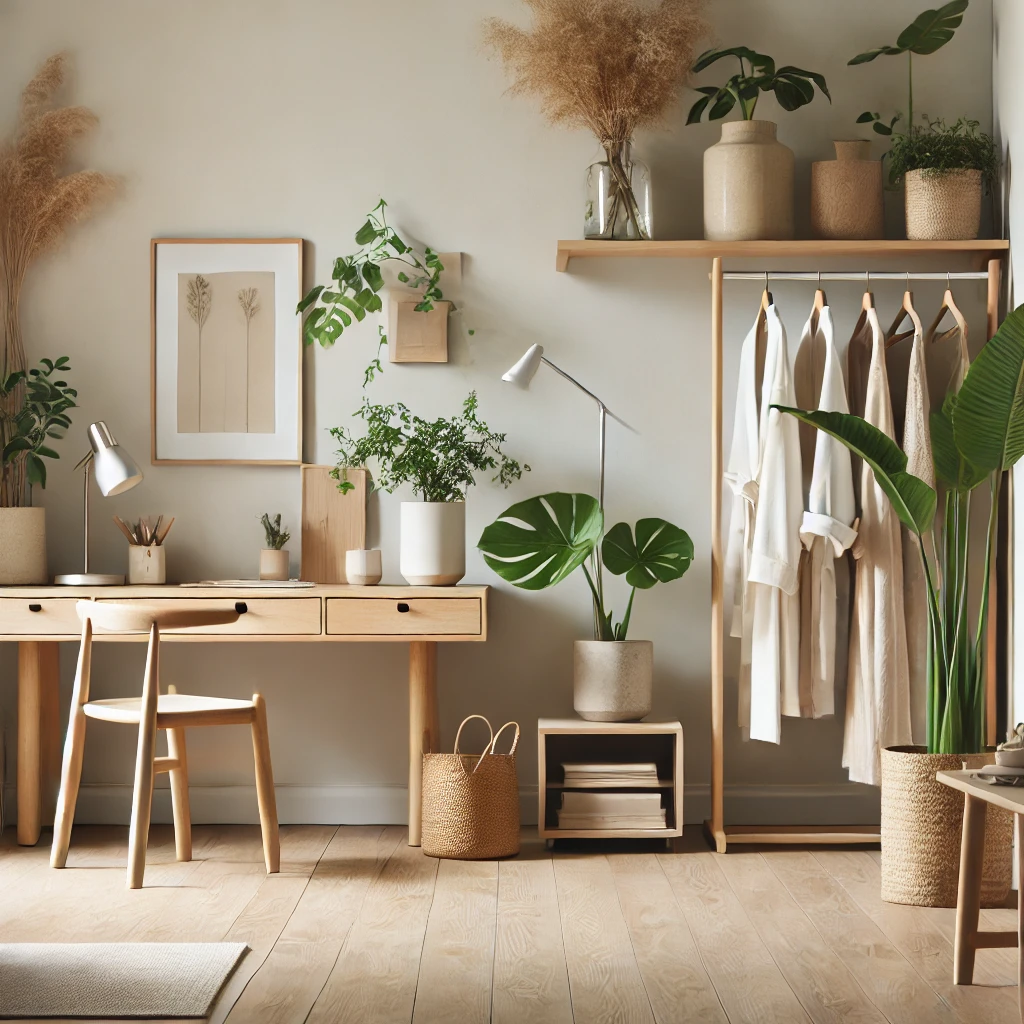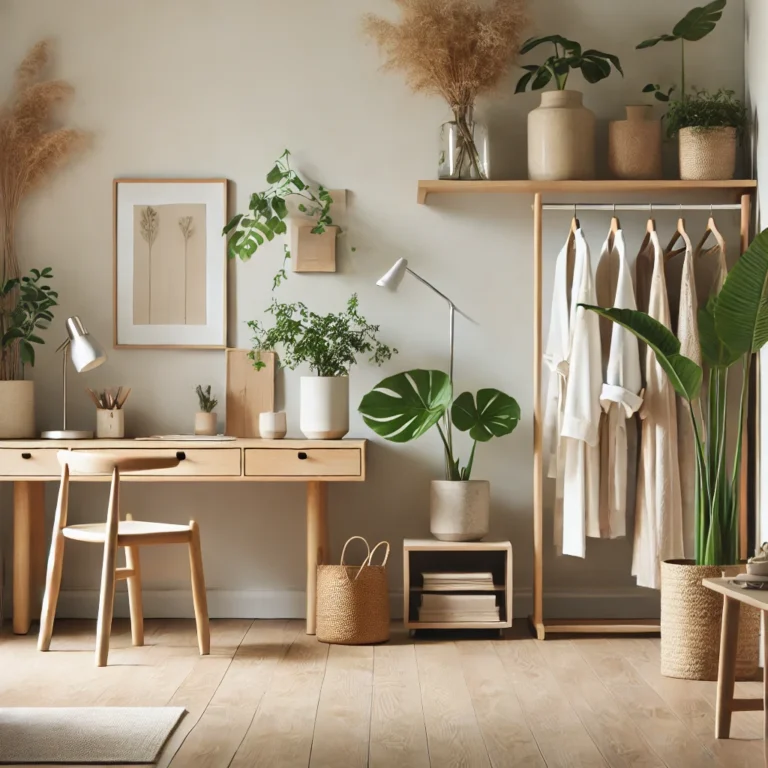Physical Address
304 North Cardinal St.
Dorchester Center, MA 02124
Physical Address
304 North Cardinal St.
Dorchester Center, MA 02124


In a world full of distractions and excess, embracing a minimalist lifestyle can be transformative. Minimalism isn’t just about decluttering; it’s a way to simplify life, prioritize what truly matters, and live sustainably. Adopting minimalist habits doesn’t require a drastic lifestyle overhaul; it can begin with small, intentional steps that lead to lasting change. Here’s a guide to help you simplify your life with practical minimalist habits that can benefit your well-being and the planet.
Adopting a minimalist lifestyle is about creating space—physically, mentally, and emotionally—by removing the excess that clutters our lives. Minimalism allows us to focus on what’s essential, such as relationships, personal growth, and environmental responsibility. According to the Becoming Minimalist movement, minimalism is a tool that can help us find freedom from the trappings of consumer culture, allowing us to lead a life of purpose and fulfillment.
Minimalist habits align well with sustainable living because they encourage mindful consumption, reducing waste and conserving resources. By choosing quality over quantity, we create a lifestyle that benefits not only us but also the planet.
Regular decluttering helps prevent the accumulation of items we don’t use or need. By evaluating belongings periodically, we can focus on keeping only those things that add value to our lives. Start small by decluttering one room or category, like clothing or kitchen items, and donate, recycle, or responsibly discard what no longer serves you.
Example Tip: Schedule a monthly decluttering day to go through a specific area of your home. This can prevent clutter from building up and help maintain a clean, organized space.
Mindful purchasing is a core aspect of minimalism. Before buying something, ask yourself if it’s truly necessary and if it aligns with your values. Consider quality over quantity and look for items made from sustainable materials. Avoid impulse buying and prioritize purchases that will last longer.
Example Tip: Implement a 30-day rule for non-essential items. If you still want it after 30 days, then consider buying it. This practice reduces impulse purchases and encourages intentional consumption.
Digital clutter can be just as overwhelming as physical clutter. Embrace digital minimalism by organizing your devices, unsubscribing from unwanted emails, and setting boundaries for screen time. A clean digital space can improve focus, reduce stress, and make technology a tool rather than a distraction.
Gratitude is a powerful minimalist habit that shifts focus from what we lack to appreciating what we have. Taking a few moments each day to express gratitude can help you recognize the abundance in your life, reducing the desire to acquire more material things. This habit supports a simple, fulfilling lifestyle and fosters a mindset of contentment.
Example Tip: Start a gratitude journal and write down three things you’re thankful for each day. Over time, you’ll notice a positive shift in how you view your possessions and experiences.
A capsule wardrobe is a small, curated collection of versatile clothing pieces that can be mixed and matched. This approach reduces decision fatigue and saves time, as you’ll always have a go-to outfit ready. Capsule wardrobes also promote sustainable fashion by focusing on quality items that last, rather than fast fashion trends.
Learn more about building a capsule wardrobe.
Minimalist meal planning can help reduce food waste and make grocery shopping easier. Plan meals for the week, stick to a grocery list, and prepare simple, nutritious recipes with minimal ingredients. This approach not only saves time but also encourages mindful eating and reduces stress around meal preparation.
Example Tip: Try a “Meal Prep Sunday” where you prepare a few staples like rice, roasted vegetables, and proteins. This makes weekday meals quicker and more enjoyable without resorting to takeout.
One of the most rewarding aspects of minimalism is the shift toward valuing experiences over possessions. Instead of spending money on material items, invest in experiences like travel, hobbies, or time spent with loved ones. Experiences bring lasting joy, personal growth, and meaningful memories that material items cannot provide.
Reducing media consumption can help clear mental clutter. Set time limits on social media apps, reduce news consumption, and focus on high-quality, meaningful content. By being selective with media, you can create mental space and spend more time on activities that enrich your life.
Mia, a marketing professional from Spain, decided to embrace minimalism after feeling overwhelmed by clutter in her home and mind. She began by decluttering her wardrobe, only keeping clothes she loved and felt confident in. Mia also reduced her screen time, limited impulse buying, and started a gratitude journal.
As a result, Mia noticed a profound improvement in her mental clarity and a deeper sense of peace. Her minimalist habits extended to other areas of her life, creating more time for activities she enjoyed, like hiking and spending time with friends. Mia’s journey shows how small changes can lead to a more meaningful, sustainable lifestyle.
Minimalism is about simplifying life to focus on what matters. By adopting minimalist habits like mindful purchasing, decluttering, and valuing experiences over things, you can create a life that’s less cluttered and more fulfilling. Minimalism not only helps reduce waste but also fosters contentment and mindfulness, empowering us to live intentionally and sustainably.
Question for You:
Have you tried any minimalist habits in your life? What changes have made the biggest impact for you? Share your experiences in the comments, and explore our other articles for more sustainable living tips.
Let’s embrace minimalism together, making our lives richer, simpler, and more meaningful—one habit at a time!